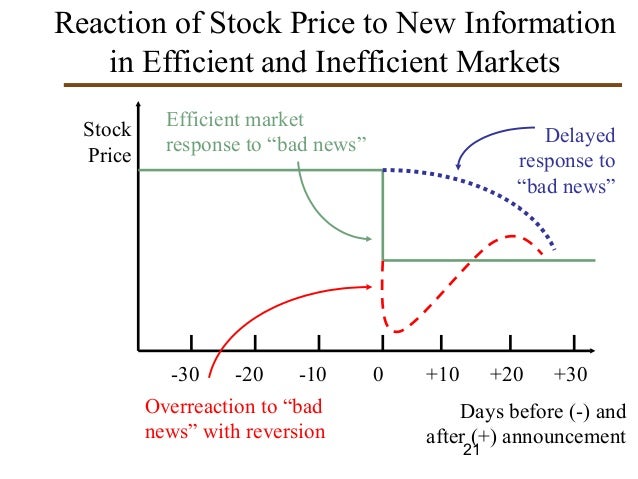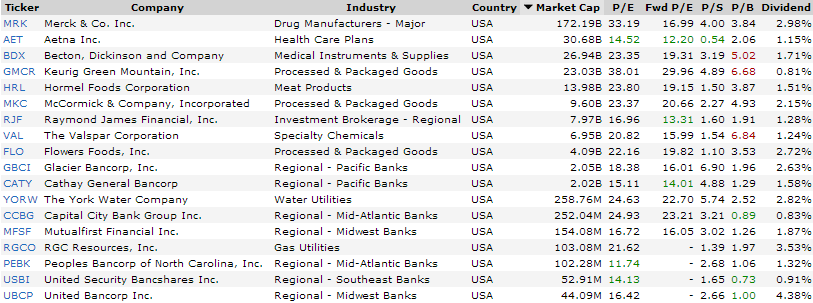Stock price reactions to share buyback announcements
Founded in by brothers Tom and David Gardner, The Motley Fool helps millions of people attain financial freedom through our website, podcasts, books, newspaper column, radio show, and premium investing services.
Does a Stock Buyback Affect the Share Price? -- The Motley Fool
Stock buybacks, also sometimes known as share repurchases, are a common way for companies to pay their shareholders. In a buyback, a company purchases its own shares in the open market. Doing so decreases the number of shares held by the public, thereby increasing the ownership stake of each remaining shareholder and -- hopefully -- the share price.
Buybacks versus Ordinary Dividends: Marginal Investor Reactions to Cash-return Announcements
Both buybacks and dividends are options for a company that wants to "return value to" or "reward" its shareholders. But there are some important differences between the two methods. Dividend payments usually contain an implicit promise that the company will try to maintain or raise the dividend over time. Buybacks allow a company to reward shareholders without tacitly committing itself to repeating that largess in years to come.
Buybacks can also be more lucrative for corporate executives than dividends. Managers who are compensated via stock options rather than company stock don't receive dividends, but they can benefit from a buyback that pushes up the near-term or long-term stock price. Buybacks can also be lucrative to shareholders if the company's stock is undervalued when it's bought back. But if the stock is overvalued, buybacks can be a waste of money. You'll often see companies buy back lots of stock when earnings are good -- and stock prices high -- only to be forced to reduce buybacks, and even sell stock, when losses are piling up, and share prices are low.
Needless to say, buying high and selling low is exactly the opposite of what long-term shareholders want. A buyback reduces the number of shares in a company held by the public. Because every share of stock is a partial share of a company, the fraction of that company that each remaining shareholder owns increases.
In the near term, the stock price may rise because shareholders know that a buyback will immediately boost earnings per share. Over the long term, a buyback may or may not be beneficial to shareholders. Here's an example of how it works.

Without the share buyback, McDonald's would have finished the year with 1, Each shareholder thus ended that year owning a 1. With fewer shares out there, earnings per share increased. Book value per share decreased -- while each shareholder got a bigger share of the pie, the pie itself became smaller when McDonald's spent a lot of money on the buybacks. Standard and Poor's Capital IQ. Will the buyback make shareholders better off or worse off? It depends upon whether the company got a good deal for its money.
In other words, long-term shareholders hope the company paid a price that was lower than the stock's intrinsic value. Comparing McDonald's' share buybacks with its stock price from through suggests that the McDonald's' buybacks have done well for shareholders, because they occurred at much lower price points than the long-term future price.
Stock price reaction to share repurchase announcements by banks in normal and crisis times | Niu | Journal of Economic & Financial Studies
Now that you know what happens when companies buy back stock, you might be interested in buying some shares yourself.
For that, you're going to need a brokerage account, if you don't already have one. The Fool has a great section where you can l earn about various brokers, and figure out which one is the best choice for your investing needs.
This article is part of The Motley Fool's Knowledge Center, which was created based on the collected wisdom of a fantastic community of investors. We'd love to hear your questions, thoughts, and opinions on the Knowledge Center in general or this page in particular.
Your input will help us help the world invest, better!
Thanks -- and Fool on! The Motley Fool has no position in any of the stocks mentioned. Try any of our Foolish newsletter services free for 30 days. We Fools may not all hold the same opinions, but we all believe that considering a diverse range of insights makes us better investors. The Motley Fool has a disclosure policy.
Skip to main content The Motley Fool Fool. Premium Advice Help Fool Answers Contact Us Login. Latest Stock Picks Stocks Premium Services. Stock Advisor Flagship service. Rule Breakers High-growth stocks.
Income Investor Dividend stocks. Hidden Gems Small-cap stocks. Inside Value Undervalued stocks.
Learn How to Invest. Credit Cards Best Credit Cards of Best Credit Card Sign-Up Bonuses Best Balance-Transfer Credit Cards Best Travel Credit Cards Best Cash-Back Credit Cards Best No-Annual-Fee Credit Cards Best Small Business Credit Cards. Mortgages Compare Mortgage Rates Get Pre-Approved How Much House Can I Afford? Taxes How to Reduce Your Taxes Deductions Even Pros Overlook Audit-Proof Your Tax Return What Info Should I Keep?
Helping the World Invest — Better. How to Invest Learn How to Invest. Personal Finance Credit Cards Best Credit Cards of Best Credit Card Sign-Up Bonuses Best Balance-Transfer Credit Cards Best Travel Credit Cards Best Cash-Back Credit Cards Best No-Annual-Fee Credit Cards Best Small Business Credit Cards. Does a Stock Buyback Affect the Share Price?

How to Invest in Stocks. Prev 1 2 3 4 Next.